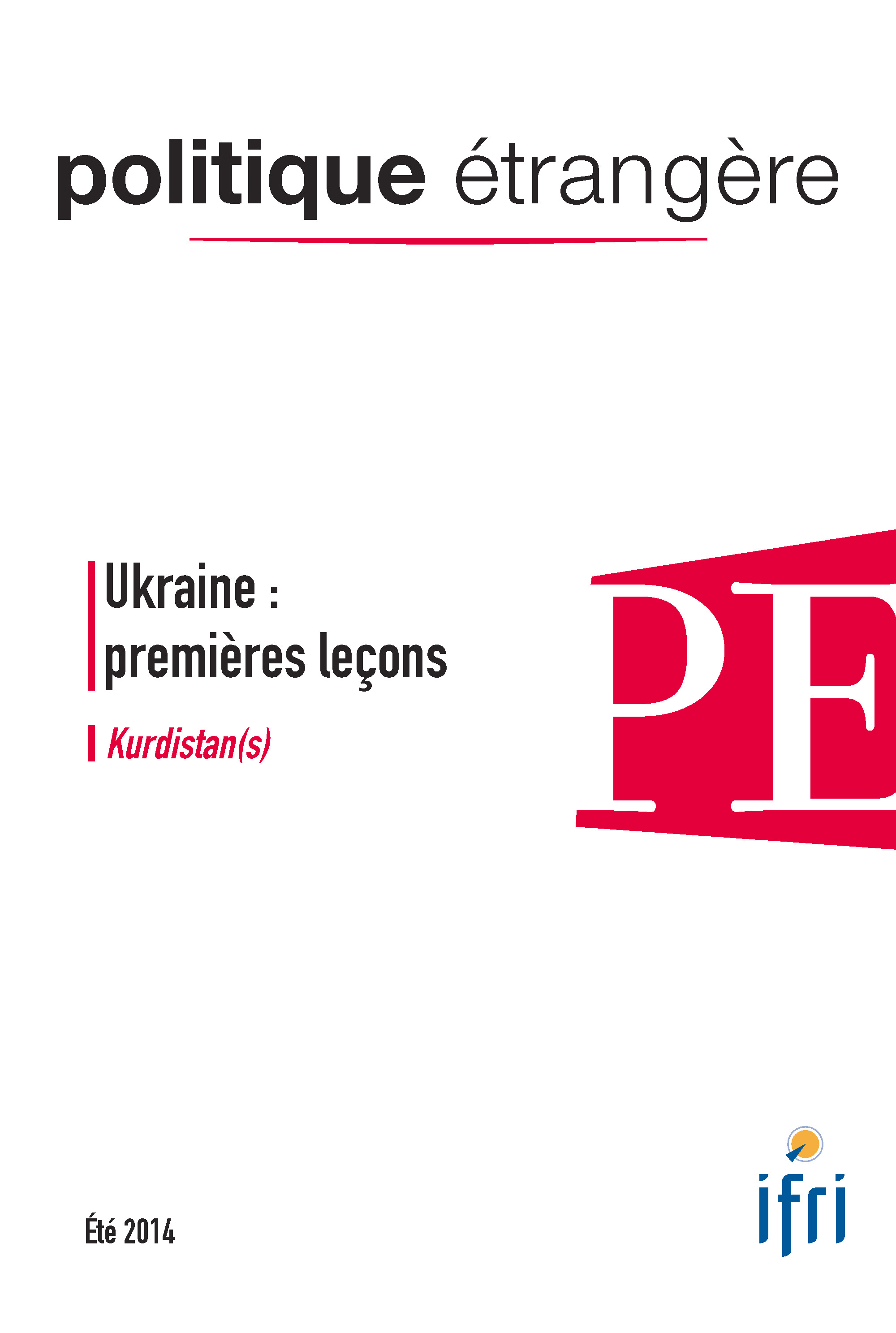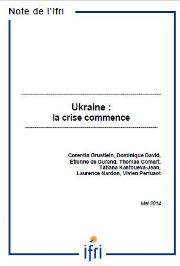Security - Defense
As a result of global strategic competition, security and defense issues are marked by the return of major wars and nuclear deterrence, the transformation of terrorism and the race for military technologies.
Related Subjects


Peace as War’s Goal: A Slow Rediscovery
According to the traditional notion of the just war, an armed conflict should lead to conditions of durable peace.

On the Strategic Value of Ballistic Missile Defense
The strategic value of missile defense remains in considerable debate in Europe but less so in the United States.
Les chausse-trapes de la remontée en puissance : Défis et écueils du redressement militaire
A process of military resurgence shows a government’s will to strengthen its defense apparatus, either to face new strategic challenges or, more frequently, to reverse decline of its capabilities.
Ukraine : the crisis begins
Il y aura un avant et un après. En Ukraine, en Russie, dans toute l’Europe, ailleurs.
La disparition de l’Ukraine comme entité souveraine – on en est plus près que jamais – serait un coup de tonnerre en Europe. Parce que l’espace qui lui survivrait serait très difficilement gérable, ouvrant le risque d’une longue guerre civile dans le style Balkans- années 1990. Et parce que la Russie est incapable de gérer seule cet espace où les Occidentaux n’ont guère l’envie de s’investir profondément.
Une Europe aux abonnés quasi-absents. La crise prend à contre-pied une Politique européenne de voisinage (PEV) brouil- lonne, éclaire l’impuissance militaire de l’Union de Lisbonne et son incapacité à s’entendre sur une stratégie commune face à un pro- blème fondamental dans son voisinage, tant demeurent prégnants les intérêts nationaux, et non politiques les mécanismes bruxellois.
Et loin, très loin, l’Amérique... Une Amérique finalement assez peu présente dans la crise, mais qui se voit, en un temps d’incertitude sur son propre positionnement stratégique, renvoyer la question fondamentale de ces 20 dernières années – qu’elle n’a pas plus que les autres les moyens de trancher : le système international retourne- t-il à grande vitesse vers une structure d’affrontement classique dont Moscou pourrait, avec Pékin, constituer l’épicentre ? Ou, bon an mal an, reste-t-il stable, avec de bons moyens d’amortir les cahots ici ou là inévitables ?
Sur l’ensemble de ces thèmes et bien d’autres encore, l’Ifri présente ici quelques brèves introductions à l’ensemble des débats ouverts par les événements ukrainiens. La crise ukrainienne ne fait que commencer.
La réforme du secteur de sécurité, entre bureaucraties et stratégie
The concept of Security Sector Reform (SSR) was developed during the 1990s as a response to several problems chiefly faced by countries in post-conflict transitions: weak new governments; conflicting civil-military relations; ill-defined division of tasks between the armed forces, the police, and the judiciary system; and tension between the requirements to stabilize the country and to establish the rule of law.


World War I, in Theory
The First World War gave rise to the emergence of the discipline of international relations, but it was the Second World War and the Cold War that fostered its development.

The Impact of the First World War on Strategy
The First World War helped redefine the notion of strategy, giving it a political dimension that it previously lacked.

The United States and the ‘Demilitarization’ of Europe: Myth or Reality?
The criticism leveled by Americans at Europe’s neglect of its commitment to defense is not new, and is often exaggerated.
Support independent French research
Ifri, a foundation recognized as being of public utility, relies largely on private donors – companies and individuals – to guarantee its sustainability and intellectual independence. Through their funding, donors help maintain the Institute's position among the world's leading think tanks. By benefiting from an internationally recognized network and expertise, donors refine their understanding of geopolitical risk and its consequences on global politics and the economy. In 2024, Ifri will support more than 70 French and foreign companies and organizations.














